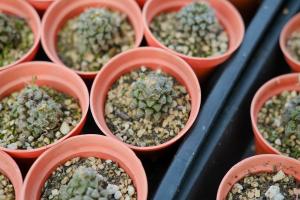The Importance of Nucleus in Plant Cell
Plant cells are eukaryotic cells with many unique features that distinguish them from animal cells. One of the most important organelles in plant cells is the nucleus. The nucleus is a spherical structure located in the center of the cell, and it contains the genetic material of the plant cell. In this article, we explore what the nucleus in a plant cell does and its importance.
Controls Gene Expression and Cell Division
The most important function of the nucleus is to control gene expression and cell division. The nucleus contains the DNA of the plant cell, which contains all the genetic information needed for the growth, development, and reproduction of the plant. DNA is the blueprint for the synthesis of all the proteins in a plant, and proteins are responsible for carrying out most of the processes in the plant cell.
Furthermore, the nucleus plays a critical role in controlling the timing and frequency of cell division. The nucleus coordinates cell division by directing the synthesis of proteins that control the cell cycle. Without proper regulation of cell division, the plant may fail to develop and grow properly.
Regulates Cellular Homeostasis
The nucleus also plays a crucial role in regulating cellular homeostasis. This organelle regulates the transport of molecules in and out of the nucleus, which is critical for the correct functioning of the plant cell. Additionally, the nucleus maintains the correct number of chromosomes in the plant cell by ensuring that each daughter cell receives an exact copy of the genetic material during cell division.
Furthermore, the nucleus is responsible for the synthesis and regulation of ribosomes, which are responsible for protein synthesis in the plant cell. Ribosomes are complexes of RNA and protein that translate the genetic code stored in the DNA into functional proteins.
Conclusion
The nucleus is a fundamental organelle in plant cells, and it plays a variety of essential roles in the growth, development, and function of plant cells. In summary, the nucleus controls gene expression and cell division, regulates cellular homeostasis, and synthesizes and regulates ribosomes. By understanding the importance of the nucleus, we can better appreciate the complexity of plant cells and their critical role in sustaining life on Earth.

 how many times do yo...
how many times do yo... how many planted tre...
how many planted tre... how many pine trees ...
how many pine trees ... how many pecan trees...
how many pecan trees... how many plants comp...
how many plants comp... how many plants can ...
how many plants can ... how many plants and ...
how many plants and ... how many pepper plan...
how many pepper plan...































